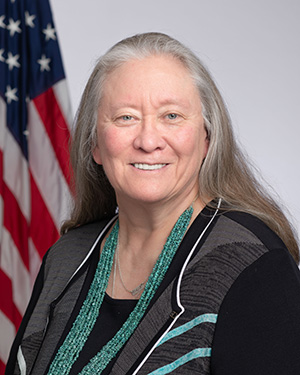In November 2022, I announced the IHS National E3 Vaccine Strategy to ensure that we offer every patient at every encounter every recommended vaccine, when appropriate. Vaccination is our agency’s clinical and public health prevention priority, as we work to mitigate the risks of vaccine-preventable illness across the age spectrum in Indian Country.
Vaccine coverage rates declined across the United States during the COVID-19 pandemic. This has left many individuals and communities again vulnerable to infectious diseases like pertussis, polio, and bacteria, such as type B Haemophilus influenzae that once caused significant illness and even death in the pre-vaccine era. Measles, declared eradicated in the United States in 2000, has already caused more than 125 infections in 2024. As a result of social drivers of health, tribal communities are especially vulnerable to a resurgence in diseases that can be prevented through immunization.
The IHS National E3 Vaccine Strategy aims to increase vaccine access and equity, improve vaccine coverage rates, and reduce the risk of disease and death from vaccine-preventable illness.
While our efforts are still in the early stages, there is reason for hope. Working in collaboration with our federal, tribal, and urban Indian program partners, our efforts to promote vaccine awareness, access, and acceptance as part of the E3 Initiative are beginning to show success. Local sites and teams across Indian Country have developed innovative solutions for implementing E3.
To date, we have designated 28 pilot sites as part of our E3 Champions Pilot Program. These include federal, tribal, and urban Indian programs in nine IHS areas. We have collected and shared a broad range of multidisciplinary best practices in the clinical, public, and community health arenas.
Today, I am announcing the launch of our E3 Pilot Community Development Project. This is part of our broader agency efforts, led by the IHS National Pharmacy and Therapeutics Committee, to connect federal, tribal, and urban programs to our pilot teams working at the local level to advance the objectives of our national strategic clinical initiatives and cross-pollinate our IHS system of care.
I am also pleased to report that we have recently certified our first E3 Champion program at the Oklahoma City Indian Clinic. Over one year, the OKCIC team effectively raised vaccine coverage rates for four immunizations (two for children and two for adults) by roughly 5 to 15 percent each in the recommended target population through various innovative strategies. Congratulations to the OKCIC team on this remarkable accomplishment!
I want to encourage more of our federal, tribal, and urban Indian partners to become a designated E3 Champions pilot site and achieve similar success, joining the OKCIC on our virtual E3 Wall of Champions, located on the E3 webpage.
I remain confident that through continued effort and innovation, we can effectively mitigate the risks of vaccine-preventable diseases among infants, children, adolescents, adults, and elders in our tribal communities. Working together to promote vaccine awareness, access, and acceptance, we will protect generations of American Indian and Alaska Native people.



